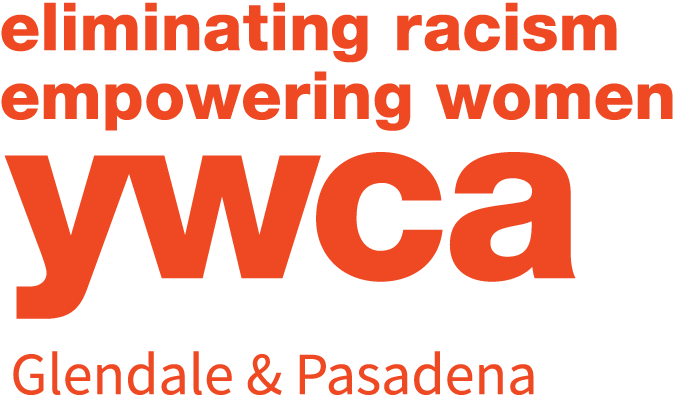Violence Prevention Education
Help End Domestic Violence
What will it take to end domestic violence in our communities? How can we address the root causes of domestic violence, support survivors as they heal from abuse, and prevent it from ever happening? These questions have been asked by countless survivors, advocates, agencies, and community members throughout the movement to end domestic violence. Pulling from the methodologies of domestic violence prevention strategies throughout the country and using several key theoretical approaches, YWCA aims to answer these questions and decrease domestic violence in Glendale and our surrounding communities.
Domestic violence is a pattern of behaviors used by one person to maintain power and control over someone with they have a relationship, whether they are married, living together, or dating. Behaviors in relationships that are abusive can be subtle, like controlling who their partner can see, asking them to dress a certain way, controlling finances, saying insults or put-downs, or showing signs of jealousy. More obvious behaviors of abuse are hitting or choking a partner, forcing a partner to have sex, or threatening to kill their partner, themselves, or other loved ones. Many of these behaviors can exist at the same time in the same relationship.
In order to end intimate partner violence, the problem must be addressed and confronted at the societal, community, relationship, and individual levels. Intimate partner violence prevention encompasses proactive efforts to stop violence and abuse from happening in the first place by interrupting the cultural rules, norms, and constructs that support it. Successful prevention efforts reflect a social change model that promotes a thriving culture where all relationships are built on respect, equality, and peace.
Prevention Levels and Strategies
-
Primary prevention strategies take place before domestic violence has occurred to prevent first time victimization or perpetration by removing the cause or preventing the development of risk factors associated with the problem.
-
Secondary prevention is aimed at decreasing the prevalence of domestic violence after early signs of the problem, preventing violence from happening again. Priority is usually given here to utilizing interventions directed at those in the population who are at particularly at high risk for violence exposure.
-
Tertiary prevention is aimed at intervening once the problem is clearly evident and causing harm. Programs utilizing the tertiary prevention approach provide ongoing support to survivors at both an individual and social level. Tertiary prevention programs are focused primarily on regaining safety.
What We Do
YWCA Glendale and Pasadena tailors our prevention programs to meet the unique needs of our communities, as aligned with three key platforms: racial justice and civil rights, empowerment and economic advancement, and safety of women and girls. All of our prevention programs focus on the intersections of our three platforms, to develop healthy communities free of violence.
We offer a range of programming, trainings, presentations, activities, and workshops that help build awareness of domestic violence issues, break the cycle of violence, and work to prevent future incidents of violence. We also support local community events, health and wellness fairs, school events, and many more through tabling and presentations about our services.
Domestic Violence Counselor Training
YWCA Glendale and Pasadena offers our 40-Hour Domestic Violence Counselor Training twice a year to staff, volunteers, and community members who are looking to better understand the experiences of survivors of domestic violence and their children. The training certification meets the requirements set by California Evidence Code 1037.1 for designation as a domestic violence counselor, allowing you to work or volunteer at a CA domestic violence organization.
Safe Dates Teen Dating Violence Prevention Education
We teach Safe Dates, an evidence based, violence prevention curriculum to support middle school students in understanding and ultimately, preventing teen dating violence. The curriculum educates students on the forms of interpersonal violence, challenges the societal norms and misconceptions that contribute to harmful beliefs, attitudes and actions related to the perpetuation of violence, and provide opportunities for students to practice bystander intervention skills to disrupt violence and support survivors.

